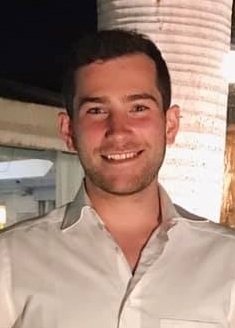Please enjoy a d’var Torah this week from Alex Harris, who will be Rosh Shoafim (entering 8th grade) this summer. Alex spent seven summers at Camp Ramah in Wisconsin as a chanich (camper) and four summers as a madrich (counselor). He will be graduating this December from the University of Michigan specializing in the Middle East and Jewish History.
What is Holiness? Reflections on Building a Kehilah Kedosha
by Alex Harris
What is kadosh (holy)? At the very basic level, kadosh is something separated from the mundane and sanctified by a connection with God. There is holiness in time like the holidays and Shabbat (the latter of which Rabbi Abraham Joshua Heschel calls “a palace in time”). These days are set aside by God for special celebration. There is holiness in space like the land of Israel which was promised by God to B’nei Yisrael (Children of Israel). There is holiness in objects like a Torah, tefillin, or a siddur which contain God’s name. There is holiness in people like Moses, Miriam, David, and Ruth who were given special missions by God.
So what? Why does it matter that something is holy? Is it something to be admired? Something special to put on display in a museum? The short answer is: no. Holiness is meant to be lived. Holiness is a way we can interact with something greater than ourselves. This week’s parashah, Kedoshim (literally: holy things), begins with a command from God to Moses:
“דבר אל-כל-עדת בני-ישראל ואמרת אלהם קדשים תהיו כי קדוש אני”
“Speak to the whole Israelite community and say to them: You all shall be holy for I am holy.” (Leviticus 19:2)
Holiness is meant to be experienced by all of B’nei Yisrael. Holiness is a state of being.
But how does B’nei Yisrael reach this state of holiness? Is it bestowed or is it earned? The rest of the parashah answers these questions. It presents us with a series of laws which detail proper ethical behavior. We must honor our parents, keep Shabbat, provide for the needy, deal fairly with others, respect the stranger, judge fairly, speak nicely to others, and more. Through living properly we separate ourselves from the rest of the world and elevate ourselves to a holy level. Rabbi Joseph Soloveitchik writes:
מה זה חיים קדשים? חיים משמעותי על פי ההלכה״”
“What is a holy life? A meaningful life according to halakha.”
In this case we should read “halakha” – usually translated as “Jewish law” – literally as the proper “way” or “path” of living.
Year after year when chanichim (campers) reflect on their summer, the same few observations come up: Camp is a special place. Camp is where I can really be myself. Camp is holy. Separated from the hustle and bustle of our everyday lives, every summer we create a קהילה קדושה, “a holy community.” At camp we are immersed in a totally Jewish environment where every moment is infused with a spark of holiness. From shacharit services in the morning to the casual Hebrew on the kikar to Shabbat to discussions about Israel, camp is a uniquely holy place. But this holiness extends far beyond ritual practice and Hebrew. Like parashat Kedoshim, the path to holiness goes right through moral and ethical behavior. By learning important skills like respect, teamwork, compassion, and friendship we strive closer to the path of holiness.
Tucked away from our “school year” lives, our beautiful pearl of a camp in the Northwoods allows us to be our best selves. Together we are immersed in and create our special, magical, truly holy community.






